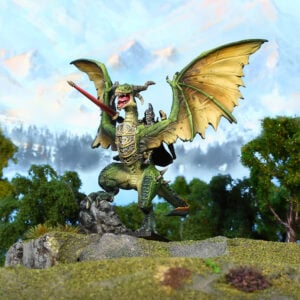Thursday Fluff – Kings Of War – The Fenulian Mirror
13th Jan 2022
Jonny Mann
Hello and welcome to Thursday Fluff.
This is our new series exploring the lore and background around some of the most interesting aspects of the worlds of Mantic. We’ll be covering all game systems too, so whether it’s the creation of the Enforcers, the splitting of the Fenulian Mirror or the Salamanders and their love of sailing, this is the place to be if you want to find out more.
Today we explore the creation of The Fenulian Mirror.
The saga of Calisor and Elinathora is more commonly referred to as the tale of the Fenulian Mirror. There are almost as many different telling’s of the story as there are stars in the sky, and certainly the details of this epic myth differ wildly amongst the different noble races. To the elves, it is a tragic story of doomed romance, a tale for the ages of the lengths to which an elf may be driven by love. To the humans, it is a tale of the selfishness and arrogance of elvenkind, the horror of an elf not being able to accept the will of a human and instead seeking to override that will by means of sorcery.
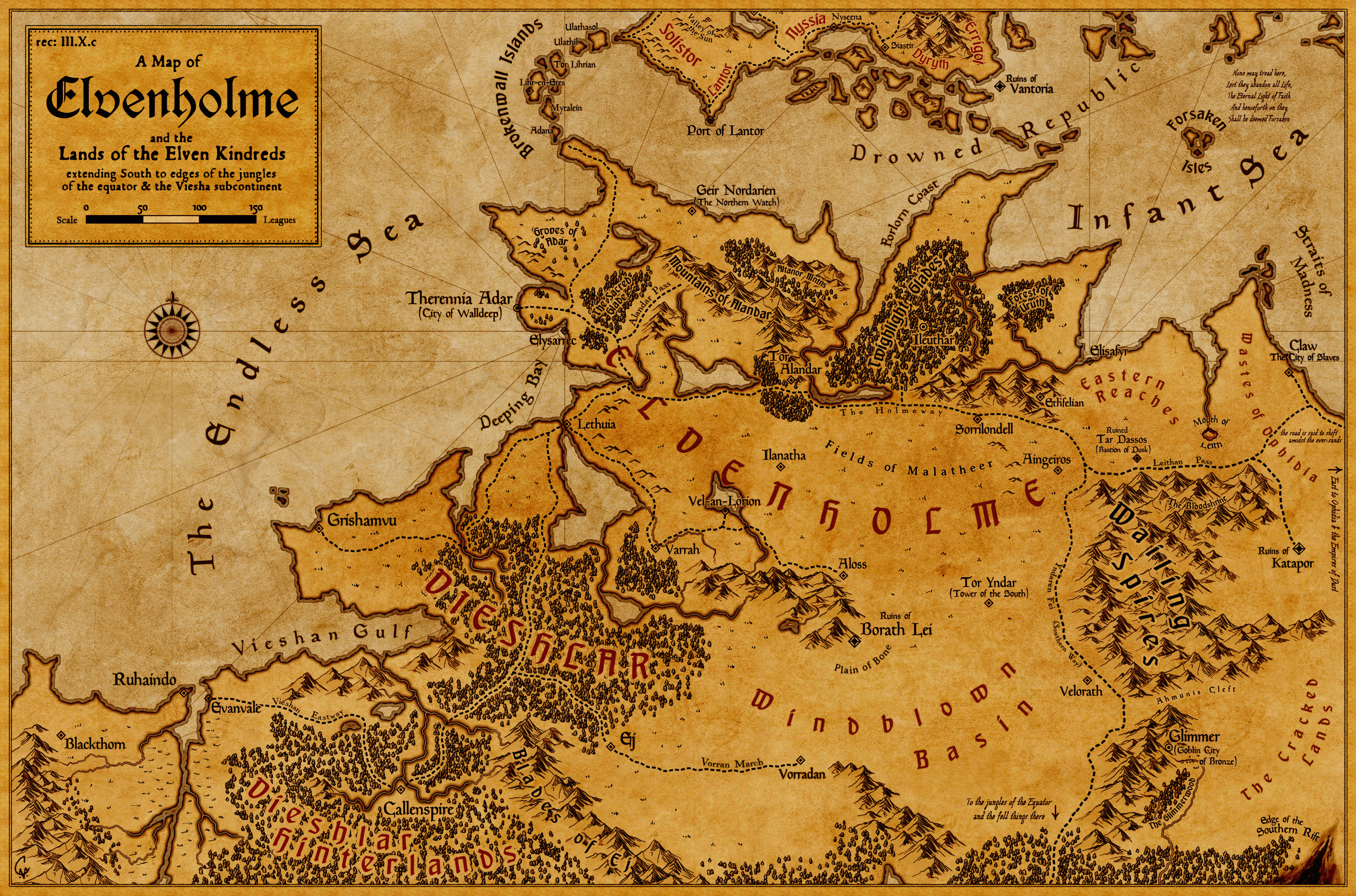
Calisor Fenulian was the most brilliant elf who ever trod the lands of Pannithor. There was no single endeavour beyond him-the arcane arts came to him as easily as the physical ones, his mastery of warfare was equal to his gift with poetry, and his peerless appearance was matched only by his easy charm and wit.
Calisor’s mastery of everything to which he turned his hand made the charismatic young elf prideful, even by the standards of his kind. When he fell in love, it was the unmaking of him and his era.
Elinathora was daughter to a minor but respected noble, brought with her father to Therennia Adar’s court when he accepted his post as envoy to the elves. Her mother had died when she was young, and Elinathora had taken care of her father and family from that day forward. Strong-willed, fiercely independent and loyal, she was a remarkable woman in her own right, but her station in life had given her no expectation of marriage into nobility.
Calisor, however, was entranced by the young woman from the first moment he laid eyes on her in the court of the High King. He resolved that he must have her hand in marriage at any cost and began a pursuit of the young woman that would be the downfall of him and the world he knew. For her part, Elianthora was respectful, polite, but uninterested.
Acquaintances of both begged Elianthora to reconsider, including her own father. Here was an opportunity to be wedded to the most radiant member of the most radiant race on Pannithor save the Celestians themselves. Her father implored her to think of the possible benefits to their own family, their city and their very people. The elves who came to see her were less romantic, confused by how this simple human woman could refuse the attention of their greatest scion. Though not exactly cruel, they were baffled by what they saw as her temerity–even arrogance–at saying no. None could sway her, and nor could the overblown attentions of Calisor himself, who tried all manner of outlandish gifts and feats to impress the object of his desires. All was to no avail, and the greatest son of elven kind slipped into a deep, morose depression. The effect of Calisor’s upset was felt throughout Therennia Adar and the wider elven realm. Rebuked formally by the High King for his inattentiveness to his responsibilities, Calisor cast down his symbols of office, wrapped himself in a simple traveller’s cloak and took to the glades surrounding the city to wander alone in misery.
As he wandered, Calisor cursed the heavens, sometimes loudly and sometimes beneath his breath. He wandered in deliberate patterns, seeking to avoid contact with any other, though in truth none lived in Adar who any longer had patience to speak with him. It was therefore cruel fate, chance or perhaps something darker that saw the elf happened upon by Oskan, when he was in the very nadir of his misery. Exactly what passed between them is unknown. Perhaps Calisor vented his woes to the young Celestian. It is clear however that Oskan learned, one way or another, of the source of Calisor’s misery, and his solution for this was something which would echo down the ages–the Fenulian Mirror.
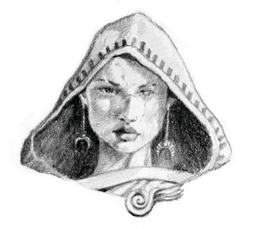
The exact nature of the mirror is disputed by scholars. Some insist that it was a literal mirror, forged through arcane means from various artefacts but nonetheless identical to its mundane counterparts in basic operation, if vastly more lavish in appearance. Others argue that it was a mighty spell, the like of which has never been performed before or since, and that the complexities of it were such that it could only be described to lesser minds than Calisor’s as a mirror in a kind of simplified metaphor.
Whatever the truth, and regardless of the version of the tale being told, certain basic factors remain the same. The Mirror was suggested to Calisor as a means to win the heart of Elinathora, if she would but gaze within its depths. To create it was an undertaking that would go beyond any magic previously attempted by any elf including Calisor himself, and would require many exotic and rare elements, but rarest of all, the glimmer of the Star of Heaven. This is a literal translation from every text detailing the event, and the wording remains the same in ancient Dwarfish, Elvish and Primovantian. Oskan’s caveat–that Elinathora must be prevented from gazing into the mirror past the singing of a golden bird being heard from its depths–seems to be delivered as an afterthought, and this would appear to be no accident. Surely, by that point Calisor was too enraptured by the thought of his love being returned to notice the oddity of this detail, or to pay it too much heed. Why Oskan would mention it at all is another matter which baffles those who study the tale–perhaps some rule or customary practice among his kin, or perhaps simply a slip of the tongue motivated by his nobler self, acting in vain against him. Whatever the truth, it is unimportant in the context of the legend.
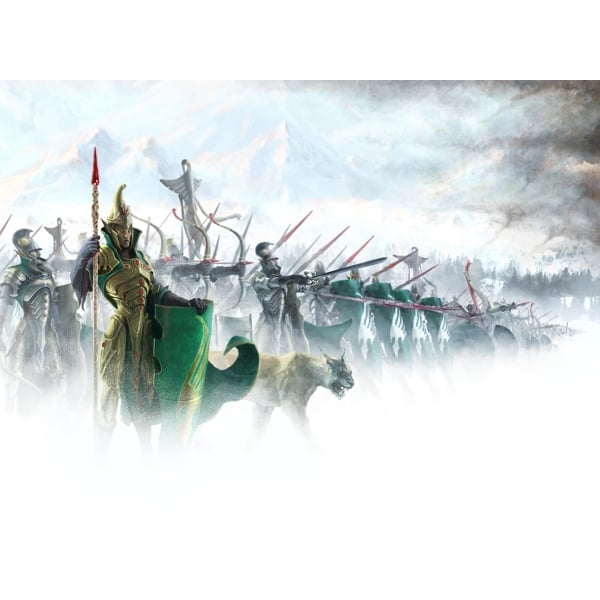
Calisor strode forth from the glades that day with renewed purpose, and something of his old vigour returned to him. When he arrived at the Court of the High King and begged the use of a mighty fleet and massive resources for his quest, the High King gladly granted both, happy to see the elves’ brightest and best son returned to something of his old self.
Calisor set forth on his quest which was to last several years. He gathered the required materials from far and wide, taking each at great cost in resources and sometimes people. None dared question him, but by the time he declared his quest complete and secluded himself in his private chambers to commence work, the fleet he had taken was decimated and the coffers of the High King were substantially emptier.
Legend tells that the world itself shuddered with paroxysms at each stage of the work. Mighty earthquakes shook the very foundations of Therennia Adar, the seas boiled over and flooded inland, and the skies darkened. Nothing could dissuade Calisor however, and eventually the mirror was ready for its final piece. Aiming it at the Star of Heaven one fateful night, the Mirror captured the light from the star, trapping it, fusing with it, and drawing power from it to fuel its function.
Once complete, he once more he found himself frustrated, his wit, charm and wealth unable to cajole, persuade or bribe Elinathora into ascending his private tower to witness his new marvel. But Calisor was not to be ignored. He pestered Elinathora, and her father. Eventually, after many long weeks of not being able to speak with a single person who would not entreaty her to see Calisor one last time and marvel at his great works, Elinathora relented, presenting herself at his chambers to witness his creation and maybe regain her own life once more. And thus, the inexorable course of history was set.
Elinathora gazed upon the mirror and saw images which melted her heart and turned her every thought towards love for Calisor. Visions came one after another–a life of wondrous and endless invention and adventure. A life lengthened many times over by Calisor’s attentions and ministrations, and a glorious, golden twilight to this magnificent life, lived out in a vast and beautiful castle raised by Calisor in her honour, perfected to her every wish in every last detail, and surrounded by the adoring multitudes of elves, humans and dwarfs, united in their love for her and devotion to her husband. Calisor grasped the hand eagerly, so enraptured by this final achievement of his heart’s most ardent desire that he failed to notice the singing of a bird, fine in golden plumage, until it was too late. The images in the Mirror darkened, taking on a different aspect than before. A marble tomb appeared, breath-taking in its stark beauty and bearing Elinathora’s name. Calisor noticed the bird and began trying to drag Elinathora away from the mirror, Oskan’s warning loud in his memories. But the woman was planted as if in rock, fixated on the images which played before her, and he dared not exert force for fear of breaking her delicate human frame.
Horror-struck, Calisor could only watch as the love so recently born in Elinathora’s heart for him withered and died to be replaced by horror as she witnessed the Mirror’s prediction of their union’s end. In the images, an unkempt and disheveled Calisor screamed at the sky as he beat his fists bloody on the unyielding marble of the tomb. A flash, and the scene changed to their bed chamber, new women sharing their marital bed with him. Another flash, and their children appeared, wracked with torment. Their eldest son, embittered by his mother’s loss, enraged by his father’s desecration of her memory, took up arms against him. They met on a blood-drenched battlefield, face to face, and Calisor, old now and feebler than ever, was run through and then crucified. Even his own men cheered as he died, finally rid of their mad master. After many minutes, as the jeers of his men at his final gasps of agony died to a murmur.
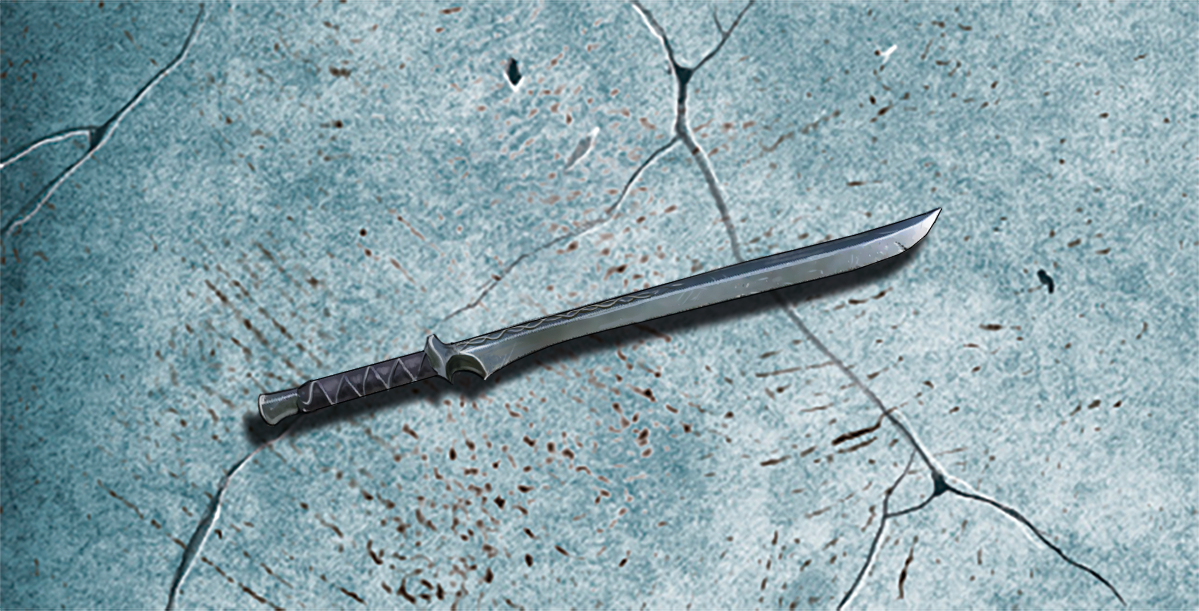
Calisor became aware of the sound in the room beside him. Elinathora was screaming, the cry of the truly broken tumbling uninterrupted from her lips as the horror of what she had witnessed battered at her sanity. With a sudden movement, her balled fist lashed out, smashing the glass of the mirror and splintering it into a mass of shards which rained down around them.
Calisor was reeling from all he had witnessed in its depths. The dead weight of Elinathora falling beside him brought him back to the reality of the room, to the lifeless corpse of his beloved, a shard of mirror buried deep in her heart, her hand resting atop it.
The eventual fate of Calisor is unrecorded, and for the purposes of the tale itself, unimportant. Though he had been the greatest of his kind, his hubris had brought about the worst consequences. Whether the act of capturing the light of the Star of Heaven itself caused it, or the smashing of the mirror by Elinathora in her rage, the outcome was the same–the Sundering of the Celestian race, destroying many outright and splitting many others in twain, their nobler aspects removed from their darker ones to create mirror image twins of hatred and love which would face one another in a conflict that would change the face of the world forever. The Mirror itself is a different matter. The so-called ‘GodSplinters’ are said to be fragments of the Mirror from its smashing. Oskan’s dark aspect himself is said to have plucked the very shard with which Elinathora had ended her life to use as his
own weapon, steeped as it was in sorrow and the weight of a life taken by itself in despair, making it a powerful dark artefact indeed. With it, he ended the life of his nobler half, the first GodMurder, imbuing the shard with more power still.




